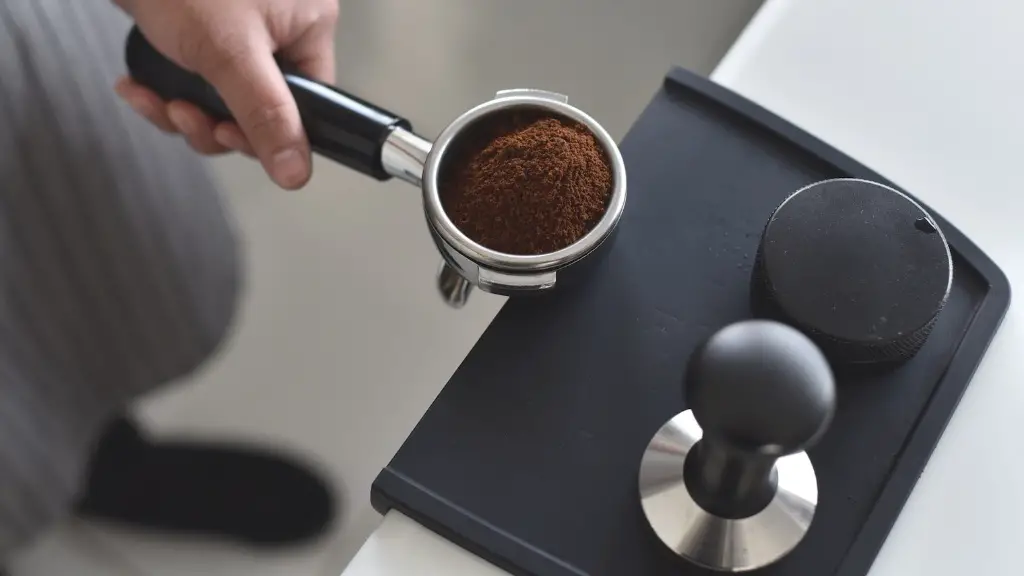A cup of coffee in the morning is part of the daily routine for many people, however, drinking coffee on an empty stomach can be a health risk. Here we will explore the risks of having coffee on an empty stomach and provide insights into how to safely enjoy coffee with added benefits.
Coffee has a reputation as an energy-booster due to its caffeine content. However, drinking coffee on an empty stomach can cause a decrease in energy, worsened concentration, and headaches. This is because coffee contains caffeine and its effects on the body are intensified when taken on an empty stomach. Caffeine causes the body to release a huge amount of energy quickly, which can cause a spike in blood sugar. As a result, people often feel more alert and energized in the short-term, but in the long-term, they may become sluggish and exhausted. When coffee is consumed on an empty stomach, it can interrupt the normal digestion process and increase the risk of developing digestive problems such as nausea, bloating, and heartburn.
According to Amanda Chen, an accredited nutritionist, drinking coffee on an empty stomach can also cause vitamin and mineral deficiencies, as it decreases the absorption of essential vitamins and minerals needed by the body. It can also reduce the effectiveness of medications as it decreases the absorption rate of many prescription drugs. Additionally, consuming coffee on an empty stomach can also lead to increased acid production, resulting in an upset stomach, or worsening of existing acid reflux or heartburn.
So, what is the best way to consume coffee? Drinking coffee with a meal is the best way to enjoy its benefits. When drinking coffee with food, it helps to slow the release of caffeine into the bloodstream, which ensures a steady energy boost. The food also helps with digestion, so it doesn’t interfere with the regular production of stomach acid. Eating a healthy meal with your coffee on a regular basis also helps provide the body with the essential nutrients it needs, as well as amplifying the overall health benefits of the beverage.
Nutrients Found in Coffee
Typical brewed coffee is packed with several important vitamins and minerals that can offer numerous health benefits. In addition to a good dose of caffeine for energy, it also contains essential minerals like potassium, magnesium, and calcium, as well as B vitamins like riboflavin and niacin. While it may not be a direct source of dietary fiber, most instant coffees or filtered coffees are known to contain some dietary fiber.
In addition, coffee may also contain higher concentrations of antioxidants, which can help fight off free radicals and protect the body from aging and disease. This is because coffee beans are naturally rich in antioxidants, and the brewing process helps to release them into the cup of coffee. While all of these essential vitamins, minerals, and antioxidants can be beneficial, it is important to remember that they will not be as effective when consumed on an empty stomach.
Coffee Alternatives
For those who don’t want to drink coffee on an empty stomach, there are other beverages and foods that can offer the same energy boost. Instead of drinking coffee in the morning, people can have a glass of freshly squeezed orange juice, a banana, or even a small bowl of oatmeal. Alternatively, tea is a great alternative as it also contains some caffeine, but it also comes with other antioxidants and anti-inflammatory compounds.
Herbal teas such as chamomile, ginger, and peppermint can be particularly soothing and calming, as they help to reduce stress hormones and improve digestion. Additionally, if people want to get an energy boost and still enjoy the taste of coffee, they can always opt for a decaffeinated version. Decaffeinated coffee still has the same flavor, but without the caffeine level that can be harmful when consumed on an empty stomach.
Benefits of Coffee
There are a number of benefits associated with drinking coffee, both on an empty stomach and as part of a meal. Drinking coffee on a regular basis can help reduce the risk of many serious diseases, such as heart disease, type 2 diabetes, and some forms of cancer. It can also help to improve alertness and focus, and may even help to boost metabolism, aiding in weight loss.
Overall, drinking coffee on an empty stomach can be unpleasant and can even lead to health risks. Therefore, it is important to take the time to enjoy coffee with a meal, as this is the best way to take full advantage of its benefits. With that being said, it is important to remember that coffee can lead to addiction, so it is important to practice moderation when drinking coffee.
Best Types of Coffee
When selecting coffee, the best types of coffee to buy are organic, freshly roasted coffee beans. This is because organic coffee isn’t exposed to the same chemicals that non-organic varieties are, ensuring that the coffee you drink is free from added toxins. Additionally, freshly roasted coffee beans are also the best option as it preserves the coffee’s natural flavor as well as its nutritional content.
In terms of flavor, darker roast coffees have a deeper flavor and contain more antioxidants than lighter roasts. However, being darker, darker roasts also have higher amounts of caffeine, so it is important to be aware of this. Additionally, it is also important to remember that some people are sensitive to the effects of caffeine and should avoid or limit their coffee intake accordingly.
Coffee Brewing Methods
There are various methods of brewing coffee, each with its own unique characteristics. These methods include drip coffee, pour-over coffee, French press brewing, and cold-brew coffee. Drip coffee is one of the most popular methods, as it is quick, easy, and produces consistent results. Pour-over coffee is a slower brewing process, requiring more patience and practice, however, it can produce an even more balanced cup of coffee. French press brewing is the most hands-on method and requires the most attention. This method requires a coarser coffee grind, which will yield a strong coffee with an intense flavor profile. Lastly, cold-brew coffee is a brewing style that takes the longest but produces a smooth and sweet cup of coffee.
Sustainability of Coffee
Coffee is one of the most consumed beverages in the world, but it can also have a negative impact on the environment if not sourced sustainably. Sustainable coffee is grown with respect for the environment, containing reduced amounts of chemicals, protecting ecosystems, and reducing the amount of greenhouse gas emissions. Sustainably grown coffee also ensures that farmers are paid fair wages for their work, strengthening their local communities and economies.
When purchasing coffee, it is important to look for products labeled as organic, Fairtrade, and Rainforest Alliance Certified. These labels indicate that the coffee was grown and sourced in a way that is sustainable, ethical, and helps to protect the environment and its inhabitants.
Final Thoughts
When taken in moderation, coffee can offer numerous health benefits. However, drinking coffee on an empty stomach can lead to a decrease in energy, worsened concentration, and headaches. When drinking coffee, it is important to find the right balance to get the most benefits from this popular beverage. Additionally, it is important to ensure that the coffee is sustainably and ethically sourced, to help support the environment and its inhabitants.




